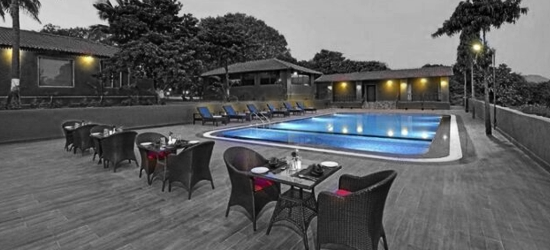
Welcome
Atithi
Gir National Park
Travel Ideas
Go Beyond Luxury, Feel the Opulence
Ranthambhore | Bandhavgarh | Kanha | Pench | Tadoba | Kaziranga | Gir | JimCorbett | Chambal | Bharatpur

Welcome
Go Beyond Luxury, Feel the Opulence
Ranthambhore | Bandhavgarh | Kanha | Pench | Tadoba | Kaziranga | Gir | JimCorbett | Chambal | Bharatpur
Gir National Park and Wildlife Sanctuary, also known as Sasan Gir, is a forest, national park, and wildlife sanctuary near Talala Gir in Gujarat, India. It is located 43 km north-east of Somnath, 65 km south-east of Junagadh and 60 km south-west of Amreli.

Situated on the fringe of the Sasan Gir National Park in Gujarat, India on former farmlands, Aramness Gir is the only luxury boutique hospitality offering in the state. Located within the 18 square kilometre area that skirts the National Park, Aramness Gir sits within a rarely undeveloped natural paradise in a protected teak forest. Conceptualised and designed by Nicholas Plewman Architects and Fox Browne Creative, the lodge design takes its inspiration from the characteristic local village, Haripur, with its central cobbled streets fringed with courtyard homes (kothis).

Experience a unique stay, immersed in nature, within 8 acres of a lush mango orchard on the fringes of the Sasan Gir forest. Woods at Sasan offers luxurious, independent living spaces, each with its own private garden; open skies and surrounded by acres of gently waving grass and thickets of trees.

Constructed with excellent interiors and modern day amenities available, its tents category are the most adequate and stylish option to choose for stay while confirming your reservations.
It was established in 1965 in the erstwhile Nawab of Junagarh's private hunting area, with a total area of 1,410.30 sq km , of which 258.71 sq km is fully protected as a national park and 1,151.59 sq km as wildlife sanctuary. It is part of the Khathiar-Gir dry deciduous forests ecoregion.
In the 19th century, the rulers of Indian princely states used to invite the British colonists for hunting expeditions. At the end of the 19th century, only about a dozen Asiatic lions were left in India, all of them in the Gir Forest, which was part of the Nawab of Junagarh's private hunting grounds. British viceroys brought the drastic decline of the lion population in Gir to the attention of the Nawab of Junagadh, who established the sanctuary. Today, it is the only area in Asia where Asiatic lions occur and is considered one of the most important protected areas in Asia because of its biodiversity. The Gir ecosystem with its diverse flora and fauna is protected as a result of the efforts of the government forest department, wildlife activists and NGOs.
Among all the wildlife sanctuaries in India, Gir is the sole place, where you can see lions roaming freely in their natural habitat. This dry deciduous habitat, dominated by short and gnarled Teak trees, thorn bushes and grassland is surrounded by the seven major perennial rivers of the Gir region: Hiran, Shetrunji, Dhatarvadi, Shingoda, Machhundri, Ambajal and Raval. The four reservoirs of the area are at four dams, one each on Hiran, Machhundri, Raval and Shingoda rivers, including the biggest reservoir in the area, the Kamleshwar Dam, dubbed 'the lifeline of Gir'. Gir has been used by the Gujarat State Forest Department which formed the Indian Crocodile Conservation Project in 1977 and released close to 1,000 marsh crocodiles into Lake Kamaleshwar and other small bodies of water in and around Gir.
Mammals: The carnivores group mainly comprises the Asiatic lion, Indian leopard, jungle cat, striped hyena, golden jackal, Bengal fox, Indian gray mongoose, ruddy mongoose, and honey badger. Asiatic wildcat and rusty-spotted cat occur, but are rarely seen.
The main herbivores of Gir are chital, nilgai, sambar, four-horned antelope, chinkara and wild boar. Blackbucks from the surrounding area are sometimes seen in the sanctuary.
Birds: The scavenger group of birds has six recorded species of vultures. Some of the typical species of Gir include crested serpent eagle, endangered Bonelli's eagle, changeable hawk-eagle, brown fish owl, Indian eagle-owl, rock bush-quail, Indian peafowl, brown-capped pygmy woodpecker, black-headed oriole, crested treeswift and Indian pitta.